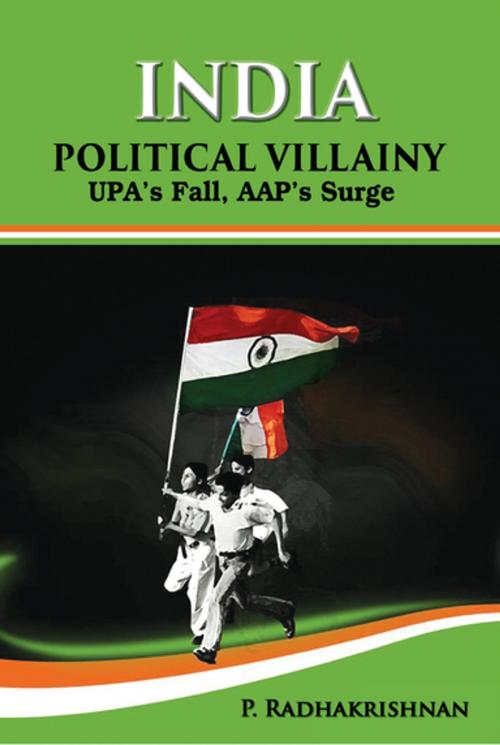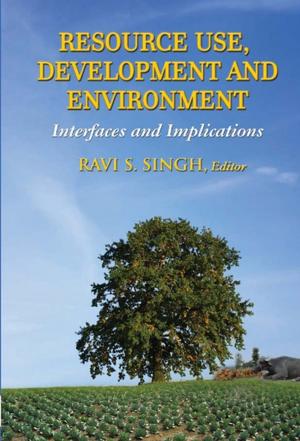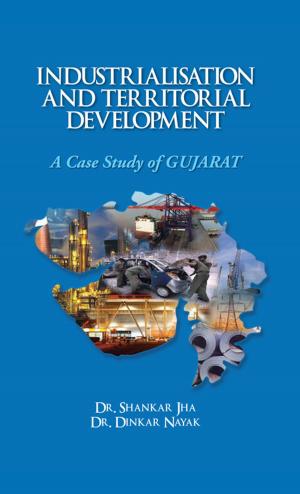India : political villainy : UPA's fall, AAP's surge
Nonfiction, Social & Cultural Studies, Political Science| Author: | P. Radhakrishnan | ISBN: | 9789383793648 |
| Publisher: | YS Books International | Publication: | June 30, 2014 |
| Imprint: | YS Books International | Language: | English |
| Author: | P. Radhakrishnan |
| ISBN: | 9789383793648 |
| Publisher: | YS Books International |
| Publication: | June 30, 2014 |
| Imprint: | YS Books International |
| Language: | English |
India has entered the new Millennium without the aura of the much-touted millennium. Indian democracy is shallower and hollower now than a decade ago. If India has to develop into a full-blown democracy, instead of merely gloating over sustaining democracy as its greatest achievement, India ought to strengthen its democratic structures and institutions and make concerted efforts for clean, corruption-free, efficient, secular, transparent and people-centric governance; rapid expansion of civil space for rapid secularisation and democratisation of state and society with secular public institutions mediating between both; equip and energise the judiciary for expeditious justice delivery, especially for the masses who cannot afford to spend and cannot afford to wait; and protect and uplift the weaker sections from poverty, illiteracy, unemployment, and social oppression. As the nation has been caught between the two evils Congress and BJP, team-Anna's anticorruption surge, launching of the Aam Aadmi Party led by Arvind Kejriwal who played a major role in team-Anna, the AAP's stunning performance in the Delhi Assembly elections held in December, all happened in quick succession. The AAP's "model politics" being tried out in Delhi, and expected to be tried out in Parliament through the Lok Sabha elections will decide the nature of the future of Indian democracy. There is much to be said in favour of and expected from the AAP's "alternative politics". For this, understanding the perception of reality is as important as understanding the elusive reality itself. That is best done by identifying the fault lines in governance, the perfidies of the governors, and the pitfalls of the governed, through critiquing the system, seeing it through the common man's "looking glass". This book is a critique of the political scenario prevailing today as seen through the common man's "looking glass".
India has entered the new Millennium without the aura of the much-touted millennium. Indian democracy is shallower and hollower now than a decade ago. If India has to develop into a full-blown democracy, instead of merely gloating over sustaining democracy as its greatest achievement, India ought to strengthen its democratic structures and institutions and make concerted efforts for clean, corruption-free, efficient, secular, transparent and people-centric governance; rapid expansion of civil space for rapid secularisation and democratisation of state and society with secular public institutions mediating between both; equip and energise the judiciary for expeditious justice delivery, especially for the masses who cannot afford to spend and cannot afford to wait; and protect and uplift the weaker sections from poverty, illiteracy, unemployment, and social oppression. As the nation has been caught between the two evils Congress and BJP, team-Anna's anticorruption surge, launching of the Aam Aadmi Party led by Arvind Kejriwal who played a major role in team-Anna, the AAP's stunning performance in the Delhi Assembly elections held in December, all happened in quick succession. The AAP's "model politics" being tried out in Delhi, and expected to be tried out in Parliament through the Lok Sabha elections will decide the nature of the future of Indian democracy. There is much to be said in favour of and expected from the AAP's "alternative politics". For this, understanding the perception of reality is as important as understanding the elusive reality itself. That is best done by identifying the fault lines in governance, the perfidies of the governors, and the pitfalls of the governed, through critiquing the system, seeing it through the common man's "looking glass". This book is a critique of the political scenario prevailing today as seen through the common man's "looking glass".















